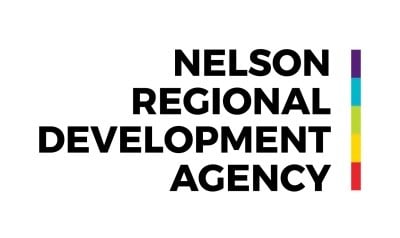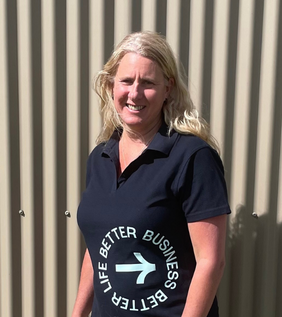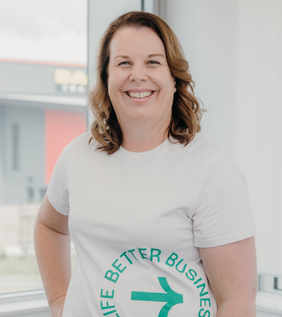Business Advice
When we started RightWay in 2011, we figured that to really support New Zealand businesses, we had to go beyond accounting. So, we formed our Business Partner team who partner with our clients on an advisory level.
Our Business Partner team is made up of experienced business owners, so they understand the trials and tribulations of running a business because they’ve been there too! Our advisors provide a great sounding board for your ideas and offer impartial, external advice and support on-call.
Backed up by our extremely knowledgable, nationwide team of, Accountants, Bookkeepers, Agribusiness and Payroll specialists. Our Business Partners have a wealth of knowledge to assist you in building your business to be everything you want it to be!
We understand that the day-to-day tasks of running a business, delivering for your clients, and supporting your team can cause strategic planning to slip. By working with a RightWay Business Partner, you’ll ensure your business is set up for success this month, and in the years to come.
At RightWay, our clients never go it alone.
Call Us To Discuss Your Needs
Let's chat!
Ready to build a better business now? Get in touch via the form below and one of our team will get back to you ASAP.
Ensure your business is set up for success
Our Business Partners offer a full range of advisory services designed for small and medium companies. Each of our clients benefits from technical expertise and specialist experience to solve problems and structure a healthy business that serves their needs.
Whether you're just starting out, are in growth mode, or are looking into succession plans our team are well experienced to assist you.

Ensure your business is set up for success
Our Business Partners offer a full range of advisory services designed for small and medium companies. Each of our clients benefits from technical expertise and specialist experience to solve problems and structure a healthy business that serves their needs.
Whether you're just starting out, are in growth mode, or are looking into succession plans our team are well experienced to assist you.
The specialist advice we provide is unique to you and your business, based on our qualifications and years of practical experience. We’ll help you streamline operations, boost profits, minimise your tax liabilities, and reach both your business and personal goals sooner.
Business Planning
We start by working alongside you to understand you and your business. Our strategic planning sessions will identify challenges that might be holding you back, and opportunities worth taking. Together, we’ll then formulate a clear, practical plan to achieve your goals.
Business Support
We support you with regular meetings to track the progress of your plan. We’re there in person or at the end of the phone to listen, bounce ideas around, and tackle any obstacles. Problems solved, together.
Business Performance
Business is personal. To achieve your goals you need to know if your business is on track. We look beyond the numbers, tracking your growth and success with both financial and non-financial measures.
Cash Management
Here’s our ‘no surprises’ policy. Because we know the ins and outs of your business, we’ll help you manage your cash flow, and put aside a rainy day contingency so you can dream bigger, and sleep better.
Forecasting
A good forecast gives you a clear picture of the future, but a bad forecast can derail you. We’ll help you forecast quickly and accurately, so you know where you’re headed.
Considering a new business idea?
Sound it out with our experienced team of business advisors!
Our team will review your new idea in conjunction with your overarching business goals, without getting bogged down in the detail. We can assist you to map out the steps you need to take to make sure everything is on track for success.

Considering a new business idea?
Sound it out with our experienced team of business advisors!
Our team will review your new idea in conjunction with your overarching business goals, without getting bogged down in the detail. We can assist you to map out the steps you need to take to make sure everything is on track for success.
Many highly ambitious business owners and entrepreneurs have dreams of taking their businesses to the big time. But scaling a business is so much more than adding headcount or indeed customers. In reality, scaling needs to be part of a careful business strategy in order to retain the magic of the small business and unlock the benefits of a large business.
Cash flow is what drives your business and keeps you awake (or preferably, asleep!) at night. Put simply, cash flow is the lifeblood of your business. It’s also one of the most important measures of success of your business. Your business is like the game of monopoly – you can’t pass “go” without cash flow.
Managing a business can be overwhelming! More often than not you’ll be wearing multiple hats throughout each day as you flit between being a people manager, managing the businesses financials, forecasting, strategically advertising your products and/or services, researching new technologies along with a multitude of other tasks required daily!
With more than half a million small business owners in New Zealand, there’s a breadth of backgrounds, cultures and approaches that make up our community. But while small businesses really do take all sorts, we’ve been able to observe the common traits that all successful owners appear to have. In this article, we’ll cover what some of these are. The good news? All of these traits can be worked on and developed with a bit of focus and the right support.
Okay, it may sound like a silly question. Of course you know your business! Who’s closer to your day to day operations than you? And that’s fair enough. But when small business owners are doing everything, there’s going to be elements of the business that get more attention than others. It’s only reasonable that providing your service to your customers is priority number one. Even well-established small businesses turning over reasonable revenue can lose sight of the detail around the financials.
Ever competed in a race where you weren’t told where the finish line was? Tried your hand at baking without a recipe book? How about leaving for holiday without packing your bags? If these all sound ridiculous to you, then let us draw the comparison with a business that doesn’t make plans. Making plans and understanding parameters is so important for business success, but many fledgling businesses have barely planned tomorrow let alone the long term.
It is very normal for business owners to be entrenched in the daily goings on of their businesses. With varying to do lists and high priority tasks requiring their daily attention, it can be hard to take the time to stop and look at the big picture. And that’s just the business part, let alone our busy, and somewhat chaotic, personal lives.
However, it is vital as a business owner or business manager to periodically pull your head out of the trenches and take the time to sit back and review your business as a whole, to ensure you are on track to success.

“As an SME I couldn’t run my business without the help of a professional accounting partner. I have found RightWay to be this partner, they know what to do, how to do it and they just get on with it!”
Rightway and in particular Ellina Yoo has been invaluable to our business, and I would happily recommend their services to anybody looking to find an accounting partner that truly understands SME’s and are willing to go the extra mile.

“Shelley from RightWay jumped into our business and worked closely with us to ensure the business was heading in the right direction.”
When your business grows extremely fast, it can look great to people on the outside, but at times it doesn’t feel so great on the inside. There are two words for that, cash flow.
Having RightWay by our side makes me feel so much better. Shelley is always there when we need her and I wouldn’t want it any other way.

“It has been great to have RightWay's support”
Alysha from Rightway was quick and responsive to our timelines. She assisted to ensure the audit process ran smoothly and was there to answer any questions.

“RightWay's staff have been willing to "go the extra mile" with a high service focus.”
We have used the financial services of RightWay at Maxim Institute for some years now. We have found them to be professional and accommodating of our changing service requirements, even when these have been at relatively short notice.
Geoff Harper
Maxim Institute

“RightWay has been a fantastic option for our bookkeeping.”
They have been flexible and consistently reliable. I would not hesitate in recommending their services.
Chris Archer
Archer McCrae Beverages

“I always leave meetings with RightWay feeling really inspired”
I'm a small business owner and have been with RightWay for several years. They have provided me an excellent service both in terms of accounting and business advice. Highly recommend!
Chester Holt
Kekeno Technology

“Three years ago my business needed some help...”
RightWay stepped up to the mark and helped me turn my business around. They listened to my what I had to say and helped me write a new Strategic Direction for the business.
Phil
Robert Harris, Rolleston

“I can highly recommend RightWay to anyone looking for an accounting team that will go the extra mile”
We have been with RightWay for over 6 years now. The team, especially Shelley, have always gone over and above to help with our accounting needs.
Ryan
Williams Fencing

How to approach due diligence when buying a business in New Zealand
Buying a business? Discover the key checks every New Zealand business buyer must make, from financial verification to legal and operational...

Reducing risk when buying a business: Why the right advice matters
Reduce the risk of buying a business with clear, independent advice. Discover what to look for, what to question, and how to make confident...

Why regular advisory input is non-negotiable for your business
Think advisory input is optional? RightWay Business & Lending Advisor Shelley, shares why regular business advisory support and strategic g...






